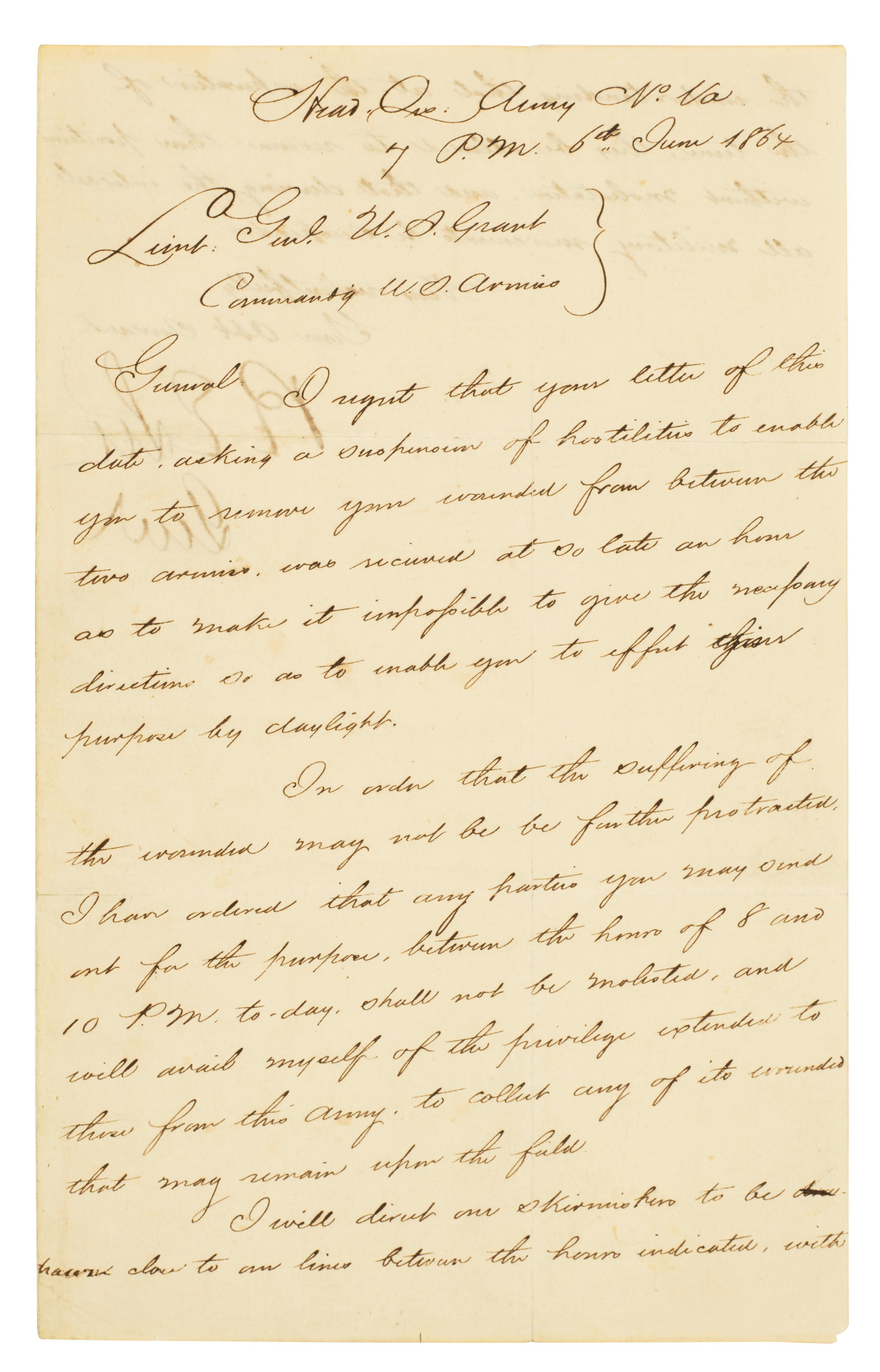Details
VOLTA, Alessandro (1745-1827). Autograph letter signed ("A Volta") to Giovanni Francesco Fromond, Como, 12 August 1775.
In Italian. Two pages, bifolium, 262 x 189mm. With integral transmittal leaf addressed in his hand (seal tear repaired). Edge-mounted into a half-morocco folder and slipcase.
An important letter concerning Volta’s first experiments with electricity. Volta writes to his friend Francesco Fromond describing his construction of and experiments with the electrophorus, a manual capacitive electrostatic generator. It could produce electrostatic charges via the process of electrostatic induction between its dielectric plates. A similar instrument was invented 1762 by the Swedish professor Johan Carl Wilcke. It was improved and used in multiple experiments by Volta in 1775, who named it electrophorus, meaning "electricity bearer." It allowed an electrostatic charge to be generated and stored for use in electrical demonstrations and experiments. Volta also called it elettroforo perpetuo (the perpetual electricity bearer). Volta perfected the instrument and applied it in his earliest investigations into electricity. He was able to demonstrate that electric charge could be generated mechanically (as in the Van de Graaf generator) and was not solely a property of living organisms, as Galvani had asserted in his discovery of "animal electricity." "The efforts made after 1775 by dozens of electricians around Europe in order to come to terms with the new machine and with its curious exploits – its apparently endless source of static electricity and the puzzling operations that made the trick possible, later explained on the principle of induction – are regarded as having been the most powerful impulse in drawing the electricians away from the old and shaky notion of 'electric atmospheres.' By casting doubt on that notion, the electrophorus was instrumental in discarding the last seriously misleading tenet of the effluvial interpretation of electricity. It thus freed electricians from the major shortcoming of Franklin’s otherwise successful theory of electricity and opened the way to the crucial distinction of matter and its field" (Pancaldi, Volta, Science and Culture in the Age of Enlightenment, Chapter 3 "The Electrophorus"). Volta describes in detail the construction of his machine, and the best materials and techniques for generating the electrostatic charge. He also promises to send Fromond a copy of his letter to Joseph Priestley written 10 June 10 1775.
This is one of the earliest writings by Volta on the electrophorus, one of several letters Volta wrote to Giovanni Francesco Fromond (1739-85) on the subject. Fromond travelled widely in Europe and corresponded with many of the leading scientists of his day including Priestley and Benjamin Franklin He came to know Volta in 1774-75 when he was employed by the Brera Astronomical Observatory which supplied Volta with equipment for his experiments. Provenance: Sotheby's, 21 November 1989, lot 404 – Sotheby's, 2 June 2021, lot 56.
Details
VOLTA, Alessandro (1745-1827). Autograph letter signed ("A Volta") to Giovanni Francesco Fromond, Como, 12 August 1775.
In Italian. Two pages, bifolium, 262 x 189mm. With integral transmittal leaf addressed in his hand (seal tear repaired). Edge-mounted into a half-morocco folder and slipcase.
An important letter concerning Volta’s first experiments with electricity. Volta writes to his friend Francesco Fromond describing his construction of and experiments with the electrophorus, a manual capacitive electrostatic generator. It could produce electrostatic charges via the process of electrostatic induction between its dielectric plates. A similar instrument was invented 1762 by the Swedish professor Johan Carl Wilcke. It was improved and used in multiple experiments by Volta in 1775, who named it electrophorus, meaning "electricity bearer." It allowed an electrostatic charge to be generated and stored for use in electrical demonstrations and experiments. Volta also called it elettroforo perpetuo (the perpetual electricity bearer). Volta perfected the instrument and applied it in his earliest investigations into electricity. He was able to demonstrate that electric charge could be generated mechanically (as in the Van de Graaf generator) and was not solely a property of living organisms, as Galvani had asserted in his discovery of "animal electricity." "The efforts made after 1775 by dozens of electricians around Europe in order to come to terms with the new machine and with its curious exploits – its apparently endless source of static electricity and the puzzling operations that made the trick possible, later explained on the principle of induction – are regarded as having been the most powerful impulse in drawing the electricians away from the old and shaky notion of 'electric atmospheres.' By casting doubt on that notion, the electrophorus was instrumental in discarding the last seriously misleading tenet of the effluvial interpretation of electricity. It thus freed electricians from the major shortcoming of Franklin’s otherwise successful theory of electricity and opened the way to the crucial distinction of matter and its field" (Pancaldi, Volta, Science and Culture in the Age of Enlightenment, Chapter 3 "The Electrophorus"). Volta describes in detail the construction of his machine, and the best materials and techniques for generating the electrostatic charge. He also promises to send Fromond a copy of his letter to Joseph Priestley written 10 June 10 1775.
This is one of the earliest writings by Volta on the electrophorus, one of several letters Volta wrote to Giovanni Francesco Fromond (1739-85) on the subject. Fromond travelled widely in Europe and corresponded with many of the leading scientists of his day including Priestley and Benjamin Franklin He came to know Volta in 1774-75 when he was employed by the Brera Astronomical Observatory which supplied Volta with equipment for his experiments. Provenance: Sotheby's, 21 November 1989, lot 404 – Sotheby's, 2 June 2021, lot 56.















Try LotSearch and its premium features for 7 days - without any costs!
Be notified automatically about new items in upcoming auctions.
Create an alert